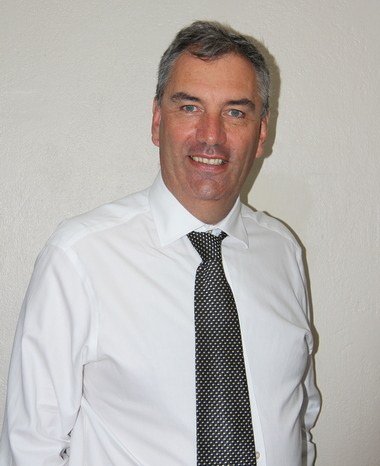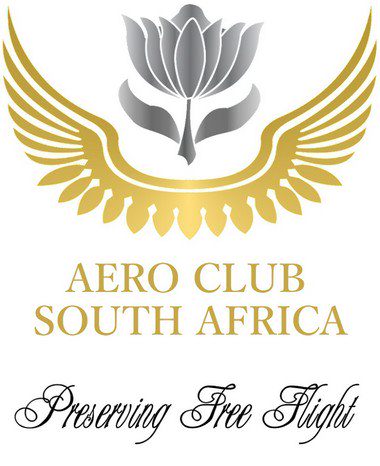Aero Club of South Africa General Managers Report -Sept 2018
By Alan Evan-Hanes
 
RAASA is going - what now?
The SACAAs decision to withdraw its support of RAASA in April 2017 is heading fast to reality. The reasons to close RAASA have been given as an extensive study followed by a business case, neither of which have been distributed to the approximate 6,500 recreational pilots whom this directly effects. At a recent Round Table Stakeholder Engagement Session hosted by SACAA to ponder the effect of SACAA taking over the services currently performed by RAASA, questions regarding the rationale for the decision were not provided to the audience's satisfaction. This is rather unusual as it is completely at odds with the normal (and welcome) current SACAA practice of openness and real stakeholder engagement.
RAASA formally ceases to exist on 1 April 2019. SACAA does not have the physical space to accommodate the RAASA employees at Midrand, until at least the latter part of 2020, when the SACAA intends to occupy new premises at OR Tambo. It is Aero Club's opinion that we might see some staff changes and re-branding of forms, but there are unlikely to be any material changes in services offered, costs and service levels for some time. This is good news for us as RAASA has been exemplary in this respect. They currently issue on average 220 ATFs and 150 NPLs per month.
This means that your Authority-to-Fly and National Pilots Licences will still be issued much as they have been, although NPLs might migrate to the SACAAs new EMPIC system, and experience delays; but this is in preparation for credit card licences that can be renewed online! Aero Club will continue to aim at maintaining these service levels and costs.

Recreational Aviation will be managed by the SACAA Head of Aviation Safety Operations, who already has approximately 60% of all staff reporting to him, so we believe that a subordinate will be appointed to oversee recreational aviation. For those who do not know Mr Simon Segwabe, an aircraft engineer, he has a pragmatic sensible approach to resolving problems and generally a pleasure to deal with, although exceptionally busy.
There has been agreement to review legislation to empower the various Aviation Recreation Organisations (such as EAA, Soaring Society, MISASA, and others) to develop, comply and audit their own regulations as they are the actual subject matter experts in the various fields, where most of the activity is performed by passionate volunteers. Such self-governance based on peer review is fully in line with other worldwide regulators such as Australia and Europe. But with that comes the responsibility to abide by such rules. One thing we all do know - tons of bureaucratic paperwork do not make our sport any safer, just more costly.
Aero Club Membership = 3,323
As at 30 September 2018, Aero Club has provisional figures of 3,323 individual paid up members, which excludes SA Model Aircraft Association who can proudly boast of 3,459 members themselves.
Our analysis showed that 50% of our members are older than 50 years old. Only 6% of our members are female - which is surprisingly exactly in line with world-wide trends. We do not currently have enough data to accurately assess non-white membership, other than to say it is increasing beyond expectation.
We noted a spike of membership of persons between the ages of 25 and 30, and it is thought that this is the age when aviation adventure fun is overtaken by marriage / young family / career and mortgage commitments. Aero Club is looking at ways to attract this group into continuing being in aviation.
Third Party Insurance
Aero Club has significantly discounted third party cover for all types of recreational aircraft. You have to be a member of Aero Club to take advantage of this. We can also negotiate for group discounts for hull cover.

ICASA Aircraft Radio Station Licences
Aero Club has prepared a dossier detailing the lack of service its members have received from ICASA. A meeting has been scheduled to meet with SACAA, Department of Transport and CAASA (Commercial Aviation Association of South Africa) to discuss the problems and hopefully get support to find a resolution. This will however take some time, so do not hold your breath.
Approved Persons Update
Approved persons are an enigma, performing a difficult (and often thankless task) for no real benefit at significant personal risk. The South African Gyroplane Association has brokered insurance cover for Approved Persons. Please do contact the Aero Club should you wish to know more.
It is the intention of Aero Club to revitalise the Approved Persons Scheme, and in a manner to be able operate across the spectrum of the AROs, within the confines of their licences / ratings / endorsements.
New Aero Club Constitution
The existing Aero Club Articles of Association are little more than an updated version of a document probably written around a hundred years ago. Although we are proud of our history we do need to keep pace with current regulations and changing times. A complete rewrite has been in progress for around three or more years, after a monumental effort but is now ready for adoption. A Special General Meeting has been called to approve the new constitution, which can be downloaded from the Aero Club website for your review. Please do attend. Proxies are welcome.
Event: Aero Club of SA - Special General Meeting to approve new MOI and Constitution
Venue: EAA Auditorium, Hurricane Rd, Rand Airport
Date/Time: 23 October 2018 18h00

Square Kilometer Array and Aviation
Dr Adrian Tiplady was an invited guest of the Aero Club Board of Directors and addressed them in explaining the current state of the SKA project. In summary, it is apparent that the technical standards for the SKA is still work in progress, and exact definition of the affected radio spectrum and strength thereof cannot as yet be determined.
He explicitly stated that the regulations DID NOT APPLY to aeronautical communication and navigation radios, which are specifically excluded. He conceded that their need for a quiet radio zone was an unrealistic objective, and it was at odds with aviation requirements, and a compromise or innovative technological solution would need to be found.
Dr Tiplady advised that SKA does intend to engage with the various aviation stakeholders. He expressed a willingness to develop technical solutions to problems encountered in collaboration with the aviation industry.
However, there continues to be a general mistrust by radio spectrum users (including Aviation) that decisions will be made that potentially will affect them.
It was requested by the Aero Club of SA that the SKA team be more transparent in their activities and inclusive of aviation users to be part of the debate and decision process of how the airspace will be utilised. Aviation safety and economic contribution must take preference over scientific exploration with little benefit for most South Africans.
Fly safe,
Alan Evan-Hanes
|
      |























